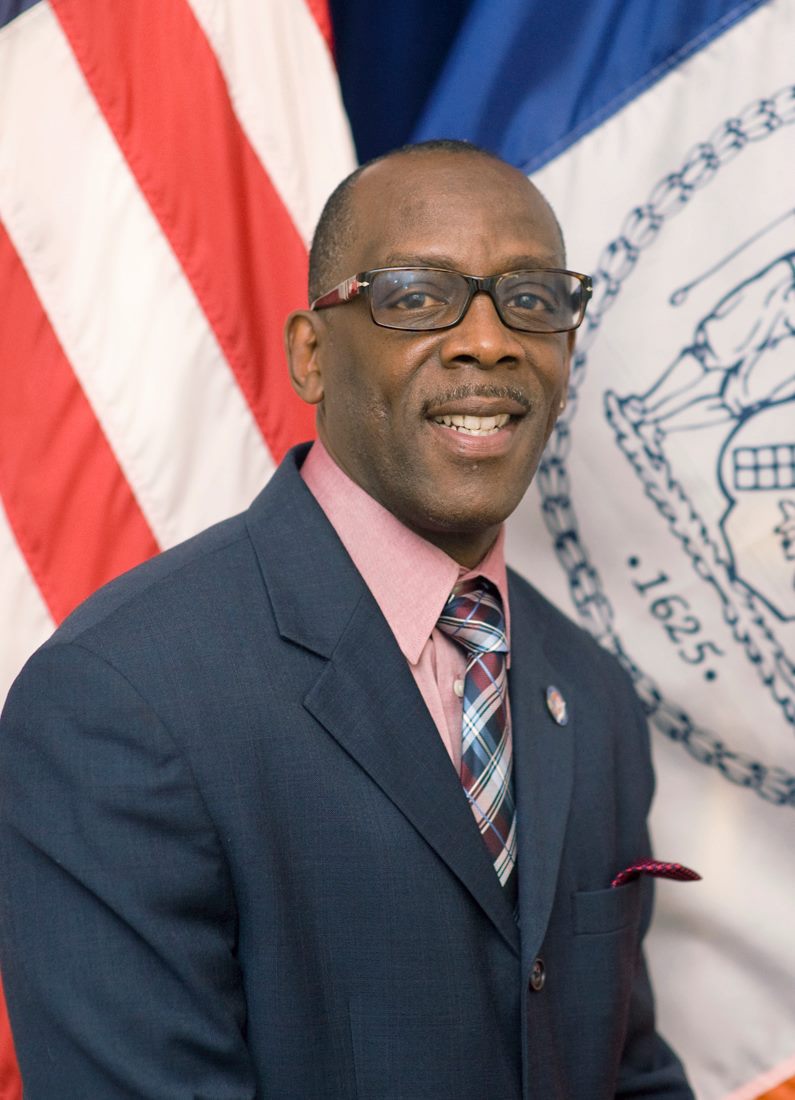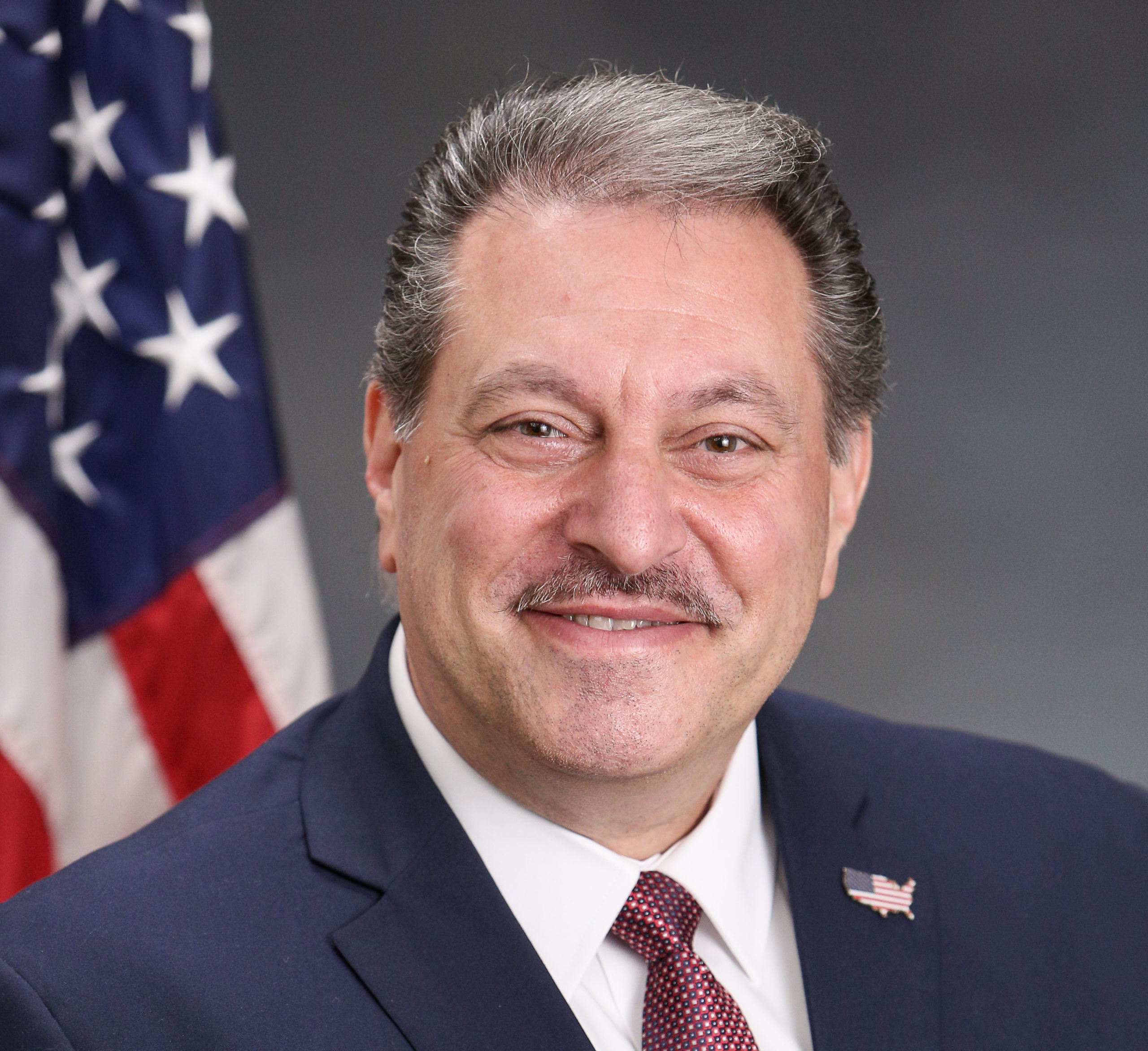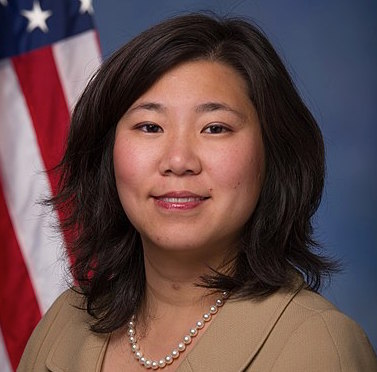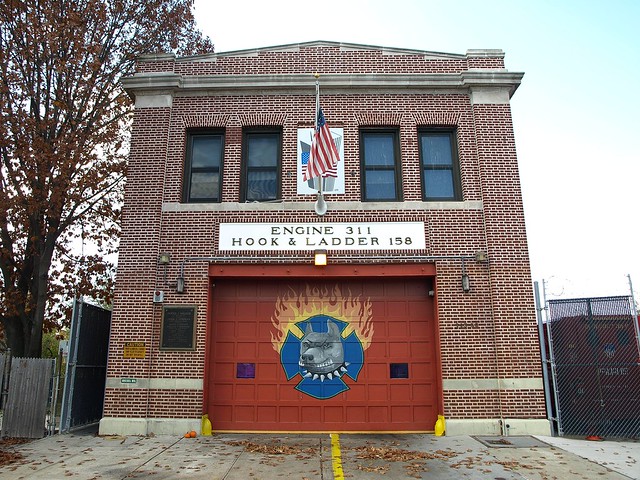Miller Urges City, State to Work Together on Vaccine Distribution

City Councilmember I. Daneek Miller sent a newsletter to his constituents on Monday about the COVID-19 vaccine:
“COVID-19 remains a threat to our community. We’ve seen both positivity and hospitalization rates rise steadily these past several weeks due to the holidays. New eligibility for the COVID-19 vaccine took effect this morning, allowing more elderly New Yorkers and essential workers including transit workers and teachers to get the vaccine. While this is a step in the right direction, it’s still not enough.
I joined my colleagues in the Black, Latino, and Asian Caucus and Brooklyn Borough President Eric Adams at City Hall over the weekend to demand that the City and State get on the same page and make vaccines available to the most marginalized and severely impacted communities throughout this crisis. That means ensuring that more essential and frontline workers who worked throughout the pandemic get access to the vaccine, as well as those with pre-existing conditions and New Yorkers who reside in the most impacted ZIP codes. I will be introducing a resolution in the Council shortly and will keep you updated on these efforts.
For more information on where you can get the vaccine currently, click here to visit the NYC Vaccine Command Center. For COVID-19 testing locations around the district, visit: https://coronavirus.health.ny.gov/find-test-site-near-you.
Save the date: there will be a COVID-19 micro-site pop-up tomorrow from 9:30 to 4:00 PM at the Greater Allen Cathedral. No appointment is necessary, and I encourage you to get tested even if you are not symptomatic. You can still carry and spread the virus without feeling ill.”
Addabbo Joins Call with Health Commissioner on COVID Vaccine

State Senator Joseph P. Addabbo, Jr. joined his colleagues in state government on a Zoom call last week with Dr. Howard A. Zucker, Commissioner of Health for New York State, to discuss the COVID-19 vaccination and its subsequent rollout to the public.
“After months of rigorous testing and trials, the two COVID-19 vaccines that we have are determined by a wide coalition of medical experts to be both safe and effective to combat the virus,” Addabbo said. “I want New Yorkers to know that this vaccine is safe and that they should seriously consider getting it when available to them. The vaccine is our best weapon to win the war against COVID-19. However, it is vital that we still wear our masks, socially distance, and continue to wash our hands regularly to give us the best chance to beat this virus.”
In the call, Dr. Zucker wanted to get across is that this vaccine is absolutely safe. The vaccine has been approved by the USA Food and Drug Administration (FDA), the Center for Disease Control (CDC), and the New York State Clinical Advisory Taskforce. This vaccine will not give anyone COVID-19. The vaccine is also over 94+% effective and is the best way to protect yourself and others from COVID-19.
As of January 5, two vaccines have been approved by the FDA: the Pfizer/BioNTech vaccine and the Moderna vaccine. These vaccines have gone through the same review that all vaccines must follow in the U.S., including three rounds of clinical trials with thousands of participants from a diverse group of race, age and other demographics. In addition, New York State’s independent COVID-19 Clinical Advisory Taskforce has approved the vaccines as safe and effective.
During the clinical trials, there were no serious side effects observed. There is a difference between side effects and an immune response to the vaccine, which is the reaction of the body to the presence of a substance that is not recognized as a part of the body itself. It is normal for people to have an immune response to a vaccine, it is an indication that the vaccine is working.
To find more information on the vaccine and when you will be eligible to receive it, visit www.ny.gov/vaccine.
BP Richards Modernizes Queens Community Board App Process

Queens Borough President Donovan Richards is accepting applications from qualified and civic-minded individuals interested in serving on one of the borough’s 14 Community Boards, which play an important advisory role in considering land use and zoning matters in their respective districts.
The 2021 community board application has been digitized to ensure the process can be completed much quicker and easier for all prospective applicants, — especially Queens residents living in transportation deserts — allowing for a more diverse applicant pool and a safer application process in light of the ongoing COVID-19 pandemic. This year’s electronic application must be completed and submitted online, requiring neither notarization nor in-person delivery to the Queens Borough President’s Office.
“Government is more effective and accountable not only when it works hand-in-hand with the communities it is sworn to serve, but when the full tapestry of each and every neighborhood is justly represented within that government,” said Richards. “This common-sense overhaul of the outdated community board application process represents a significant step toward ensuring that our 14 Queens Community Boards truly look, sound and feel like the diverse neighborhoods of each district.”
There are 14 Community Boards in Queens and each holds monthly full membership meetings. The Boards also hold hearings and issue recommendations about the city budget, municipal service delivery and numerous other matters that impact their communities.
All Queens Community Board members are appointed by the Queens Borough President, pursuant to the City Charter, with half of the appointments nominated by the city councilmembers representing their respective Community Districts. Each Board has up to 50 unsalaried members, with each member serving a two-year term.
All Community Board members who wish to continue serving on a Board are required to re-apply at the conclusion of their two-year term and are subject to review and reconsideration.
The Community Board membership application is available online. The deadline for prospective and current Community Board members to submit the electronic application is Friday, February 19, 2021. For the upcoming round of appointments, the two-year term of service will begin on Thursday, April 1, 2021.
Meng Announces Reopening of COVID-19 PPP for Small Businesses

U.S. Rep. Grace Meng (D-Queens) on Monday announced the reopening of the Small Business Administration’s Paycheck Protection Program (PPP) which provides forgivable loans to small businesses that have suffered economic losses due to the COVID-19 pandemic.
The initiative, which was closed on August 8, 2020 despite more than $130 billion remaining in the program, was reopened under the $900 billion coronavirus relief package—which became law on December 27, 2020. The new law includes a total of $284 billion for small businesses.
To qualify for a second round of funding, borrowers must:
- Employ 300 or fewer employees;
- Have used or will use the full amount of their first PPP loan; and
- Demonstrate at least a 25 percent reduction in gross receipts in the first, second, or third quarter of 2020 relative to the same 2019 quarter.
First-time borrowers must employ 500 workers or less. The program opens to first-time borrowers today on January 11. For second round applicants, it begins on Wednesday, January 13. Community lenders are first to participate in the program with other lenders to follow soon.
To qualify for loan forgiveness, 60 percent of the loan must be used for payroll expenses and the remaining 40 percent can be used for nonpayroll expenses such as rent, mortgage, or utility payments. Eligible expenses have been expanded to include personal protective equipment and supplier costs that are essential to business operations.
This new round of PPP loans also makes other entities such as non-profit organizations and housing cooperatives newly eligible for funding.
“Many small businesses, nonprofits, housing cooperatives, and restaurants are fighting for their survival and now they can apply for critical financial relief through this new round of the Paycheck Protection Program,” said Meng. “Small businesses and other eligible entities continue to face an uncertain future, and need help in weathering this national health pandemic. I will continue to fight for additional relief, especially for restaurants which have been especially hard hit through no fault of their own. I look forward to working with the incoming Biden Administration to help Queens and New York businesses and nonprofits struggling during COVID-19.”
The deadline to apply for the new round of PPP is March 31, 2021, or until funds run out. For more information on the program, please visit the SBA’s website here.
New York small businesses seeking PPP loans are encouraged to contact a representative from the New York Small Business Development Center (SBDC). There are over 22 campus-based centers and outreach offices across New York to assist clients with the loan application. For businesses located in Queens, please email the Queens College SBDC at sbdc@qc.cuny.edu, LaGuardia Community College SBDC at sbdc@lagcc.cuny.edu, or York College SBDC at sbdc@york.cuny.edu for assistance.
Gianaris’s Absentee Voting Bill Passes in Senate

Senate Deputy Leader Michael Gianaris passed two bills as part of the Senate Democratic Majority’s efforts to improve New York State’s electoral system and empower voters, part of their tradition of kicking off the legislative session by passing major pro-voter, anti-disenfranchisement, pro-democracy legislation.
The bills passed provided greater access to using absentee ballots and ensuring they are counted, no-excuse absentee voting, and an absentee ballot tracking system.
“As our Democratic supermajority continues to reform the way elections are run, fixing our latest-in-the-nation vote counting status will go a long way towards restoring faith in election results. I am proud to have authored this important legislation so we are never again still counting votes into the new year,” said Gianaris.
The bills authored by Gianaris passed on Monday are:
Earlier Counting of Absentee Ballots: S.1027 which would require absentee ballots to be canvassed prior to Election Day with results to be announced after polls close on election night.
Earlier Processing of Absentee Ballot Applications: S.516, which would require absentee ballot applications to be processed and approved faster pursuant to a specific rolling calendar.
The bills that will be passed by the Senate Majority build on the historic reforms passed during the 2019 and 2020 Legislative Session.
To watch Senator Gianaris’ floor speech, click here.







